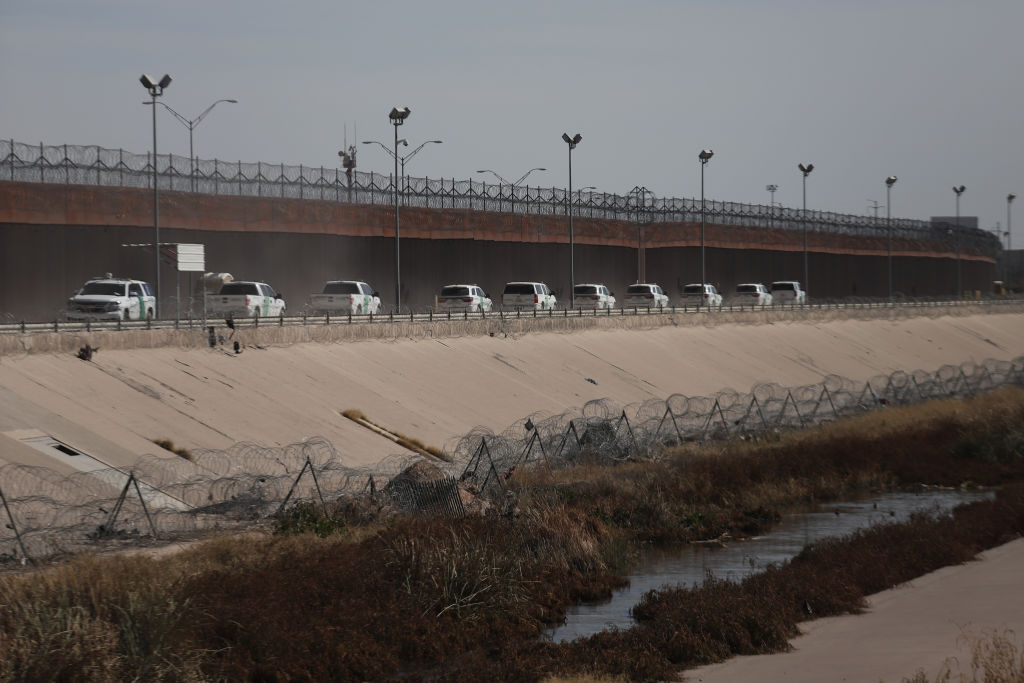
A Republican victory in November was always going to bring a recalibration of the United States’ stance on key issues ranging from Ukraine and the Middle East to NATO and China. But the writing was on the wall—and it is now patently clear—that Mexico would bear the brunt of President Donald Trump’s speak-loudly-and-carry-a-big-stick diplomacy, for reasons that go much deeper than any single dispute over fentanyl and immigration.
Despite Monday’s postponement of Trump’s 25% tariffs on its Southern neighbor, the bilateral relationship will continue to be plagued by a host of underlying structural issues, including Mexico’s democratic backsliding, institutional decay and neglect of security challenges, that have deteriorated sharply in recent years.
The confrontation has been a long time coming, the product of strategic errors on both sides of the border. The Biden administration’s need to ensure Mexico’s collaboration on migrant flows in the months prior to the presidential election—something which Mexico did indeed deliver—led it to turn a blind eye to the erosion of Mexican democracy and institutions. Washington was almost totally silent as former President Andrés Manuel López Obrador doubled down on eroding checks and balances and the independence of the judiciary, weaponizing the state against critics, avoiding direct confrontation with organized crime groups, and overall trying to steer Mexico back to a one-party hegemonic system like the golden days of the PRI that ruled my country for the last 70-plus years of the 20th century.
We saw the results of these decisions in the White House’s justification of the tariffs announced on February 1 when it stated, in no uncertain terms, that “the Mexican drug trafficking organizations have an intolerable alliance with the government of Mexico.” Never in the course of modern U.S.-Mexico ties—the aftermath of DEA agent Enrique “Kiki” Camarena’s murder in 1985 would be the closest we get—had a charge like that been leveled at a government in Mexico City. This was not the proverbial shot across the bow, it was a rhetorical intercontinental ballistic missile, an ICBM.
AMLO’s shadow
Memories are short in today’s world, but this accusation did not come out of nowhere. Over the past six years, López Obrador consistently hacked away at the fundamental pillars of the bilateral agenda with the U.S., most saliently those related to security and law-enforcement cooperation. For a man who claimed that “the best foreign policy is domestic policy,” it has paradoxically been the shortcomings and misconceptions of his domestic policies that made Mexico vulnerable to these kinds of external pressures.
There are too many examples to count: a disastrous public security and law-enforcement policy, infamously known as “Hugs not bullets”; a seriously flawed judiciary reform bill that could open the door to organized crime intimidating or cherry-picking judges à-la-carte all the way up to the Supreme Court; policies and reforms that entail violations of different chapters and disciplines of the USMCA, most relevantly in energy, agriculture, legal certainty, and now most recently in this new Mexican administration with the elimination of regulators (like the antitrust, telecoms or energy bodies) and autonomous institutions (our transparency and access to information agency); the evisceration of the Mexican state and the bandwidth and agency of governmental bureaucracies and departments; playing footsie with Russia and providing cover and succour to authoritarian regimes in Cuba, Venezuela and Nicaragua; ad hominem attacks against Republican lawmakers from the Mexican presidential bully pulpit, or lashing out against the international press because of its coverage of Mexican democracy or counternarcotics policies; and more.
A looming recession
Unless Mexico changes its approach, the consequences could be dire. Tariffs, if implemented a month from now, could push our economy into recession and set the whole North American project back four decades. Trump seems likely to bypass the novel USMCA review process, which kicks off in July of 2026, and instead impose from the get-go another renegotiation of the free trade deal that binds the three North American economies together. We could see the Trump administration, having already designated some transnational criminal groups operating in Mexico as Foreign Terrorist Organizations, evaluating ways of striking them inside Mexico, with or without the consent of the Sheinbaum government. This latter scenario is tantamount to a violation of international law.
The U.S. should have clear incentives to reach an accommodation with Mexico. At the top of the list is its competition with China, which involves the most important reset of American foreign and national security policies since the end of the Cold War. Both Mexico and Canada play a pivotal role in the success of that process. They are key to trade (and our integrated supply chains and joint production platforms) and economic policies; to energy resilience, sustainability, security, and independence; and to common-domain awareness and cybersecurity for North America as a whole.
The bottom line is that the U.S. needs Mexico and Canada if it is to successfully decouple from China without shooting itself in the foot with disruption of essential supply chains and triggering inflation, all the while remaining the preeminent global economic power. If the North American trade edifice unravels or is torn asunder because of tit-for-tat trade disputes and the potential demolition of the USMCA, the only winner will be China. That’s why Beijing has very likely been rubbing its hands over the past two months as Trump predictably threatened the U.S.’s two neighbors and partners. And all of this is happening on the road to the North American soccer World Cup in 2026, which should be an opportunity to highlight the promise and future of the region to Canadians, Americans and Mexicans—and to the rest of the world.
Retrograde threats
There’s no doubt that Trump’s persistent threat of tariffs could set the North American project back four decades, not only in terms of what trade has done to the region and the region’s future global competitiveness at a time of deepened geopolitical rivalry with China, but also in terms of the type of strategic relationship that, notwithstanding the real asymmetry of power, had developed between Mexico and the U.S., regardless of which party had been in power on either side of the border. The central tenet of shared responsibility, where transnational challenges and opportunities are handled with transnational solutions and thinking, could be on the road to extinction.
As a former Mexican ambassador to the White House, it is profoundly troubling and disheartening to see a bilateral relationship floundering due to the lack of strategic bandwidth and attention, with the sole exception of ensuring Mexican collaboration on immigration enforcement. If these two nations were irrelevant to one another, maybe it would matter less. But with a 2,000-mile land border, a unique trading partnership like no other in the world worth $1.5 billion a day in bilateral commerce, with millions of Mexicans and Americans living on either side of the border, I struggle to identify another moment in recent history so fraught and so discouraging, but so critically important, for the future and shared well-being, prosperity and security of both nations and peoples.
Mexico needs to quickly get its head out of the sand. It would certainly have no other choice but to respond surgically with countervailing tariffs on specific U.S. exports, extracting pain from Republican states and districts. But it also needs to address underlying issues; it needs to quickly rebuild and reset security cooperation with Washington, avoid the temptation of resorting to chest-thumping nationalism, and ensure there is a high-level Cabinet dialogue taking place with the U.S. administration, as was hopefully agreed to during the call yesterday between Sheinbaum and Trump.
While it is deeply troubling that not a single Mexican Cabinet secretary has visited Washington since the Sheinbaum administration was sworn in on October 1, so far she seems to have threaded the needle adequately and handled the February 3 call with Trump adroitly. But we will need to fasten our seat belts, because it will be a bumpy ride going forward.






